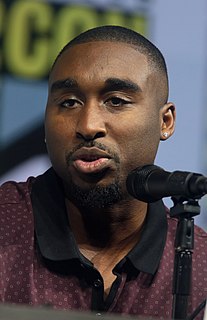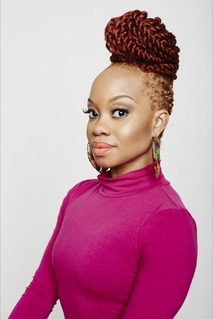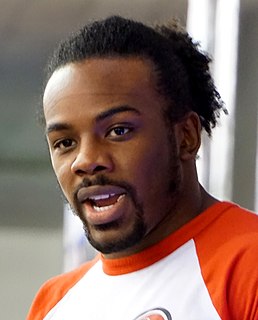A Quote by Russell Simmons
You need Black [people] sometimes to understand things about Black culture.
Quote Topics
Related Quotes
'Smart Funny and Black' is basically a live black pop culture game show that I created. We have a live band. We have two contestants that we call 'blacksperts.' They come on stage and compete in games that I've created that test their knowledge of black culture, black history, and the black experience.
There's no reason why you can't say "August Wilson, playwright" even though all of my work, every single play, is about black Americans, about black American culture, about the black experience in America. I write about the black experience of men, or I write about black folks. That's who I am. In the same manner that Chekhov wrote about the Russians, I write about blacks. I couldn't do anything else. I wouldn't do anything else.
I love everything black, because black is cool. When something crosses over, people are like, "Oh, this is a crossover." First of all, there is no urban anymore. Pop culture is black. White kids are dressing like black kids. It's all crossed the lines now. The way I understand it is, everything black is cool. When it crosses over to white, that means it's going from cool to uncool. That's what crossover is.
This is more in regards to celebrities. What we've got to understand is that we are the influencers of the hip-hop culture, the black culture. We are the way out, you feel what I'm sayin'? As far as who we look to and where we get stuff from - hip-hop culture is influencing the world, really, but especially the black communities.
I did not disregard my culture, if I did, it was the white American culture, and I accepted my true culture, when I accepted Mohammed Ali, because this is a black name, Islam is the black man's religion, and so I would like to say, that I would like to clarify that point that I reclaimed my real culture, and that's being a black man and wearing a black name with a black body, and not a white name, so I would never say that I didn't disown my culture.
I think it's important for people to understand that dance, movement, choreography is about an experience and entertainment but it's also about perception and a lens. So when we're talking about a Black female's experience through a Black female's lens, that's going to be totally different from a Black female's perspective through a Black male's lens.



































